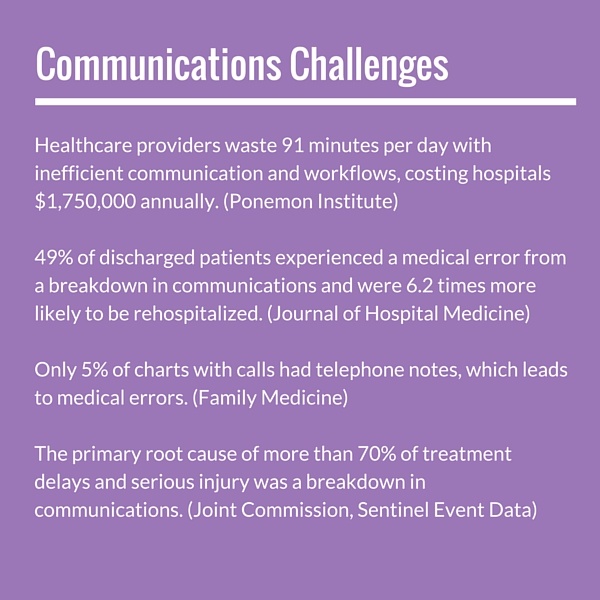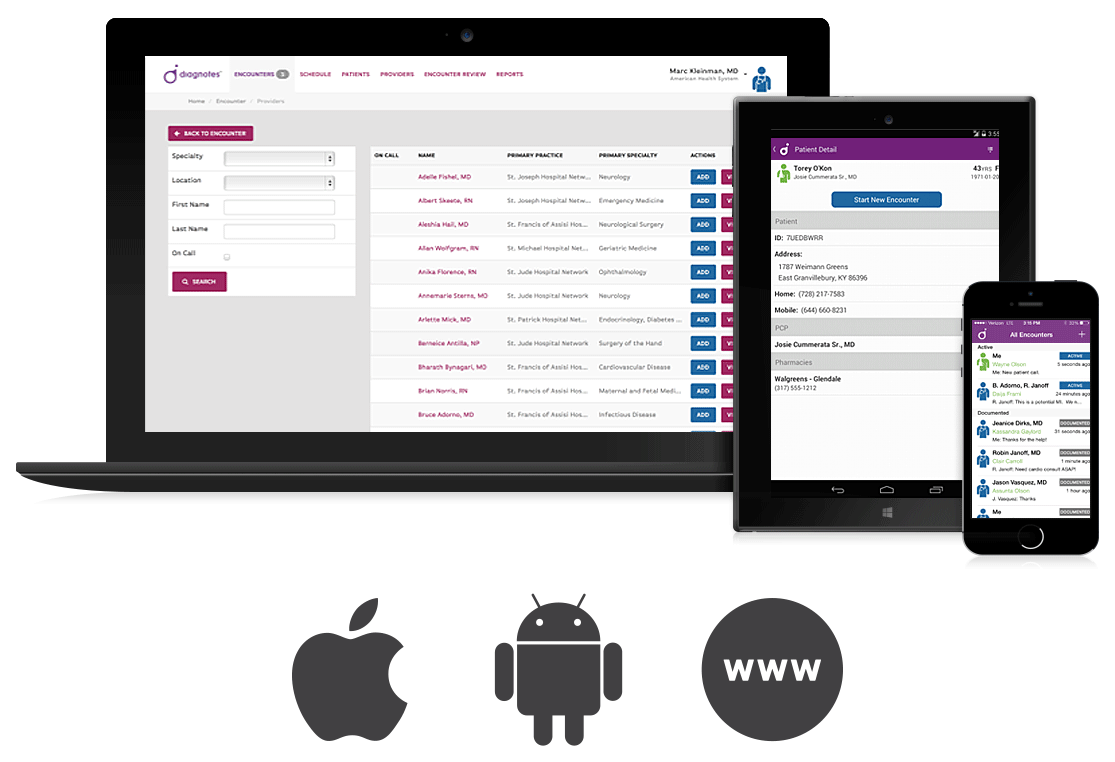Diagnotes is bringing secure, mobile communication to a doctor near you
Healthcare mishaps happen so frequently that nearly everyone has a story. Whether a grandmother gets medication intended for another, or a child with asthma gets a double dose, the cause of medical mistakes can often be tracked to a breakdown in communication.
Doctors, nurses and other healthcare professionals do their very best (often amidst chaos or unreasonable workloads at a minimum) and care deeply for patients. It’s the outdated systems and strict HIPAA regulations that have so far hamstrung healthcare enterprises from communicating faster and better with modern devices — like the ones the rest of us use every day.

Dave WortmanChairman, CEO & Co-founder of Diagnotes
The phenomenon of bringing digital tools into healthcare is still relatively new, driven to a great extent by the 2009 HiTECH Act which provided incentives for healthcare providers to adopt and use electronic health records while addressing privacy and security concerns. Implementing EHR systems has been the IT focus for most healthcare organizations since then, also impacted by the dramatic shift in payment and reimbursement policies based on patient outcomes rather than the number of procedures performed. While EHR systems are a big step forward, they haven’t magically solved everything and new challenges have emerged.
“The vast majority of healthcare spending is now coming from the consumer as a result of high deductible plans and health savings accounts instead of being hidden behind insurance payment walls, and traditional retail metrics are starting to take hold. Metrics like patient satisfaction matter more now than ever,” Wortman said. “There is a huge opportunity for us [Diagnotes] because healthcare is undergoing a major transformation and we have a platform that solves several of the biggest problems providers are facing while serving as a complement to EHR systems.”
The Diagnotes platform allows entire healthcare enterprises to communicate with each other using their own devices — smartphones, tablets and computers — with secure access to patient records and workflows that identify doctors and nurses on call. It’s an effective collaboration system that functions according to the way people communicate today with texting usually being a first choice and phone calls second in preference.
The benefits to healthcare providers can be significant because studies show communications problems impact both cost and quality — two factors that are top-of-mind for every provider.

Using Diagnotes, providers and staff can communicate with individuals or groups via secure text messages and phone calls that are routed to the right person based on specialty, location and availability. Key patient data like X-rays or lab results can be attached to text messages, and all activity is documented and archived for care continuity and billing purposes.
The newest frontier for Diagnotes is engaging patients and caregivers themselves via bi-directional secure text messages and phone calls so that providers can use a single platform for all communications. For example, a doctor simply gives her patient a 10-digit phone number to text with questions and the entire exchange takes place within the Diagnotes platform, which is documented and HIPAA compliant.

Based on early results of doctors and patients texting one another, medication adherence has gone up by 50 percent among participating patients.
The addressable market for Diagnotes is huge with more than 5,700 hospitals and about 780,000 physicians throughout the U.S. Now that the bulk of healthcare organizations have implemented some form of EHR, Wortman and his team believe the time is right to scale the company nationally because these organizations are turning their attention to solving the communications problems that are wasting money and negatively affecting quality of care.
The company has 20 active clients today that are a mix of hospitals/health systems and physicians groups including IU Health, Community Health Network, Eskenazi Health, and Hospice On Call. They are targeting more hospitals and health systems, post-acute care organizations, nursing homes, hospice and home healthcare groups for customer acquisition outside of Central Indiana.
“We have a unique solution that fits the way healthcare organizations work. We’re in the right market at the right time with the right platform to mitigate risk, reduce costs and improve quality for a wide variety of healthcare enterprises,” Wortman said.

In an effort to raise the visibility and accelerate the growth of Indiana tech companies, each week we will spotlight a growing company with a compelling story. In particular, we will spotlight scale-up companies that are rapidly emerging and could become our community’s future success stories. Visit this page to learn more the Tailwind program and see if your company qualifies.
The Tailwind program is supported by grants from the Indiana Office of Small Business and Entrepreneurship (OSBE) and the JPMorgan Chase Foundation.


